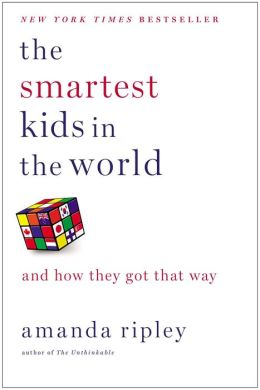Ripley paints a warts-and-all picture of both the “education superpowers” and the failing American education system, and discovers the solution to the “mystery” of effective education. It involves rigor (“The problem with rigorous education was that it was hard”), learning how to learn – and recover – from failure (“’Success,’ as Winston Churchill once said, ‘is going from failure to failure without losing your enthusiasm’”), and parents who are involved in their children’s education, not so much by being active in parent-teacher associations or coaching a sports team, but by reading to their young children every day and talking with their older children about their day or about what’s going on in the world. “They let their children make mistakes and then get right back to work. They teach them good habits and give them autonomy,” Ripley observes.
Regular readers of the educationtoday blog, PISA in Focus, or the PISA initial reports will be familiar with most of the data and some of the conclusions in The Smartest Kids in the World.What a surprise that rigor in education, helping kids learn how to learn, and parental support contribute to better education outcomes!
The review contains the sad news:
Last week, students, teachers and parents in New York State were stunned to learn that not even one in three third-through-eighth graders passed the new, state-wide English and math exams – tests aligned with the effort now underway in the United States to foster deep analytical and problem-solving skills and introduce more rigorous standards, known as the Common Core, into the country’s education system. While most US states have adopted the Common Core, disappointing first results are dampening enthusiasm for the reform: some states have already stopped rolling out the new exams, citing cost concerns.If primary school kids in New York are not learning the common core curriculum I suspect that most of the school systems in the United States are not doing what needs to be done if the country is to survive and prosper in a global knowledge economy.

No comments:
Post a Comment